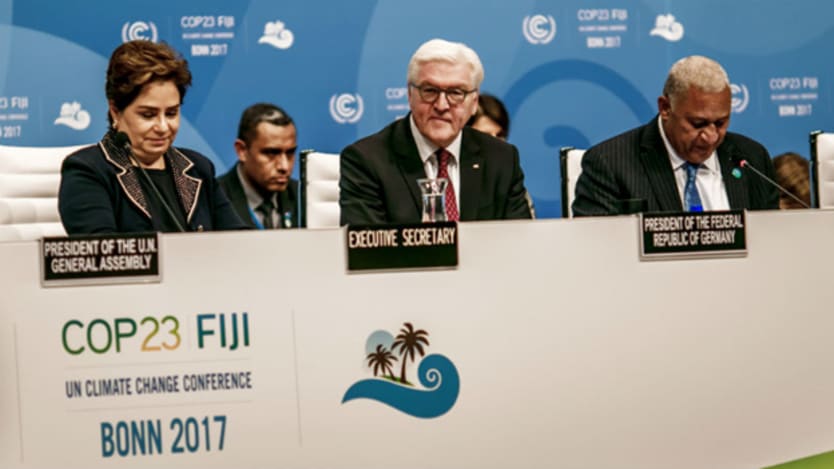
BONN, Germany — After a years-long delay, countries at the ongoing climate negotiations in Bonn adopted a draft agreement on agriculture that officials hope will lead to the actual implementation of policies to address both climate change and food security.
Ministers are expected to ratify the agreement before the end of this week’s discussions in Germany, marking a significant win for the COP23 climate talks.
The decision comes at a critical time, experts said, with global hunger growing again after more than a decade of decline. Rising temperatures, which are already having an outsized impact on smallholder farmers in the developing world, will only exacerbate that situation. This is set to make the already difficult task of achieving a hunger-free world by 2030 — the second Sustainable Development Goal — even more difficult.
“The new draft decision essentially means that the scientific and technical talks about agriculture can translate into action and the U.N. system can provide more strategic support to countries that need it,” said Teresa Anderson, a climate and resilience officer for ActionAid International.
The move to introduce new strategies to address adaptation and mitigation of climate change within the agricultural sector started more than five years ago, Sara Lickel, the right to food advocacy officer with Caritas France, told Devex. But it has been held up in the workshop stage because developed nations were not eager to discuss implementation, which will then force discussions about funding.
“Moving to implementation means putting money on the table and having funds for adaptation,” she said, although she cautioned it was not purely a disagreement between developed and developing countries. The conversations are also likely to force a reconsideration of mitigation within agricultural systems, which produce significant amounts of greenhouse gases.
The agreement came as a surprise success to some. Lickel said as recently as Monday she was not sure that the draft recommendations would move forward. And it is still not entirely clear why countries including the United States and New Zealand lifted their objections. Now, she said, the real fight begins. “For the first time, there is a space about mitigation of agriculture and about adaptation,” she said, although money will likely remain an issue. “The battle is now to come, though at least we have a space to have it,” she added.
Officials eager to begin implementing strategies that simultaneously address climate change and food insecurity see yesterday’s announcement as an important opportunity to build momentum for policies they say are increasingly critical — especially efforts to introduce sustainable agricultural practices in a warmer world.
“A lot of climate change is already locked in,” said Richard Betts, the chair in climate impacts at Britain’s University of Exeter. “We can prevent the worst, but we can’t stop it completely. The timescale for the SDGs is 2030, but it will still be a warming world by then. We need to adapt to climate change.”
That means not just adapting food systems to the warming world, but figuring out how to increase output or improve delivery mechanisms to reach the hundreds of millions of people already facing hunger. A 2017 report from the Food and Agriculture Organization found that the number of undernourished people was up to 815 million from 777 million in 2015. And climate-related incidents, especially in conjunction with conflict, are only going to make the situation worse. The FAO concluded that was one of the key issues driving the spike in global hunger.
Officials said policies exist to accommodate for some of the changes that have already taken place and to potentially help reduce tensions in some areas. José Graziano da Silva, the director-general of the Food and Agriculture Organization, pointed to advances in irrigation that can still keep crops watered, while reflecting the fact that freshwater is no longer as abundant in some places as it once was. The problem, he said, is finding the funding that can translate them into action.
“The knowledge is available,” he said. “How to bring this knowledge to the ground at a farmer’s level is what we need to in the next years.”
At the same time, civil society groups are also eager to begin discussions on how to reduce the greenhouse gas emissions from agricultural systems — particularly industrial food and farming systems — and contribute to broader efforts to stem global warming.
Read more Devex coverage on the COP23 and sign up for our daily briefings.
Read more Devex coverage on COP23:
▶ Q&A: 'There has been a shifting of goalposts at COP23'
▶ Q&A: How climate risk insurance can work for developing countries
▶ 'Alternative' US delegation to COP23 tries to reassure climate partners
▶ Can Fiji deliver a developing countries' climate conference?
▶ How to make a success of COP23: Q&A with Barbara Hendricks
Sign up for our COP23 daily briefings here.








